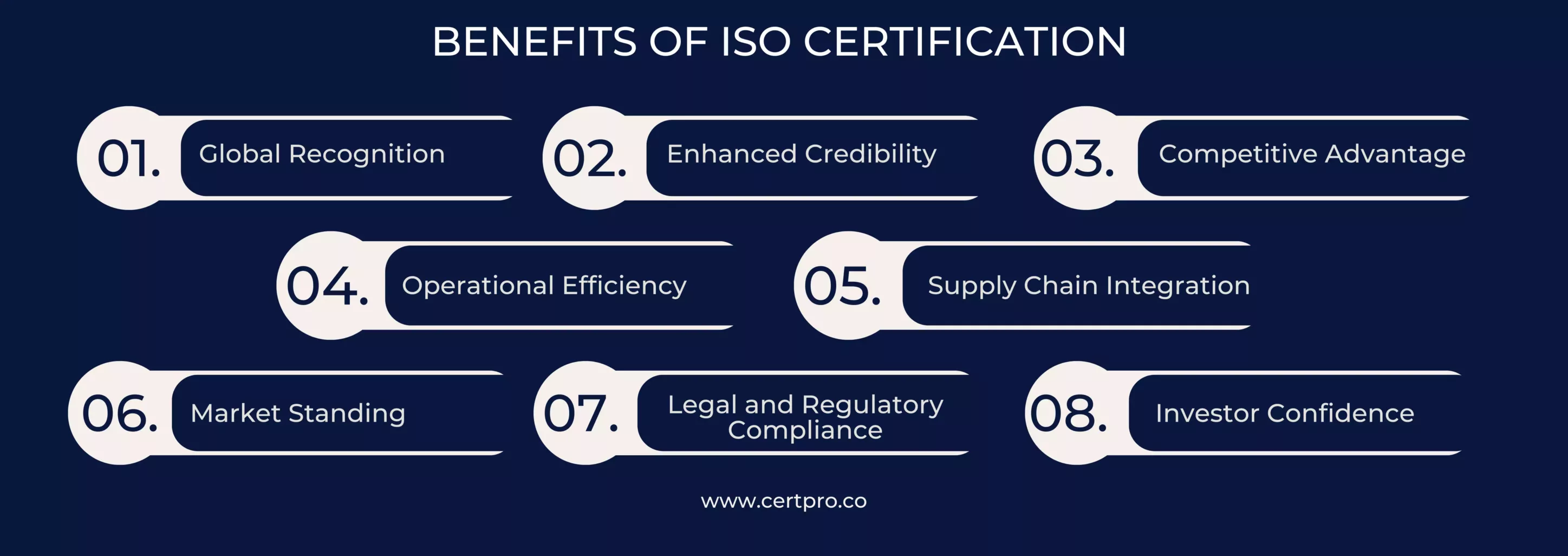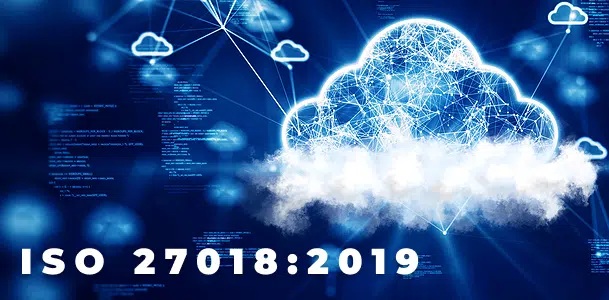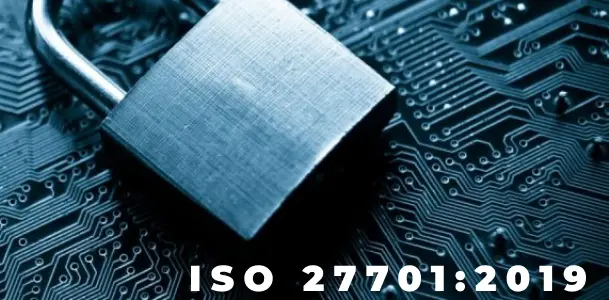Singapore
ISO Certification in Singapore
Singapore, renowned for its strategic location and economic prowess, stands out as a thriving nation in Southeast Asia. As the world’s third-largest financial center and a key player in global trade, Singapore’s economic landscape is characterized by dynamic growth and innovation. With a strategic focus on sectors like finance, technology, and manufacturing, the need for ISO certification in Singapore has become increasingly imperative. Singapore boasts a robust service sector, which plays a pivotal role in its economic success. The city-state has positioned itself as a global hub for finance, technology, and trade, prompting a surge in demand for ISO certification in Singapore. The technology sector, in particular, has witnessed substantial growth, with Singapore emerging as a hub for startups and innovation.
The automotive industry in Singapore, marked by cutting-edge technologies and sustainable practices, contributes significantly to the nation’s economic fabric. Additionally, Singapore’s retail market and e-commerce sector have experienced remarkable expansion, further underscoring the importance of Singapore’s ISO certification. The diversity of sectors in Singapore is vast, ranging from finance and technology to healthcare and logistics. With a strong presence in industries such as manufacturing, defense, and telecommunications, Singapore’s economic tapestry is multifaceted. This diverse landscape emphasizes the necessity for ISO certification in Singapore across various sectors, ensuring adherence to international standards and bolstering the nation’s global standing.
WHY ISO CERTIFICATION IN SINGAPORE?
For businesses operating in Singapore, the acquisition of ISO certification holds paramount importance in instilling confidence, ensuring quality, and optimizing operational efficiency. Securing ISO certification underscores a company’s steadfast dedication to upholding stringent standards across diverse sectors. Notably, ISO 9001 certification serves as a catalyst for Singaporean enterprises, emphasizing quality management and facilitating the creation of dependable, customer-centric products and services. Equally vital is ISO 14001, addressing environmental management—an essential consideration for a nation committed to sustainable development amid rapid industrial expansion. In alignment with Singapore’s ambitions for digital transformation, ISO certification in Singapore, particularly ISO 27001, becomes essential for safeguarding sensitive information in the ever-evolving digital landscape.
In Singapore’s intricate market landscape, these certifications hold particular significance, enhancing consumer trust and providing companies with a competitive advantage on the global stage. ISO certification signifies a commitment to reducing our standards, resulting in heightened product reliability and minimized waste. Furthermore, it streamlines processes, fostering increased productivity and reducing operational costs. Various ISO certification bodies operate in Singapore, offering comprehensive assessment, guidance, and certification services to assist businesses in navigating the certification process effectively. Ultimately, Singapore’s ISO certification empowers companies to establish robust frameworks, align with international best practices, and contribute to the nation’s advancement by championing quality, sustainability, and security.
UNDERSTANDING ISO CERTIFICATION IN SINGAPORE
In Singapore, obtaining ISO 9001 certification signals a firm’s dedication to delivering reliable and exceptional goods and services. The ISO 14001 standard addresses environmental responsibility, a crucial consideration as Singapore advances its industrial sector with a strong commitment to sustainable development. ISO 27001, with its focus on safeguarding sensitive data, aligns seamlessly with Singapore’s trajectory toward digital transformation. The diverse Singaporean market reaps significant benefits from ISO certification, which enhances consumer trust and enables businesses to compete globally. Beyond showcasing adherence to stringent guidelines, ISO certification enhances product reliability by streamlining processes, minimizing waste, and eliminating inefficiencies.
Related Links
SOC 2 in Singapore
ISO 27701 in Singapore
GDPR in Singapore
ISO 27018 in Singapore
HIPAA in Singapore
CCPA in Singapore
PIPEDA in Singapore
ISO 17025 in Singapore
ISO 13485 in Singapore
CE Mark in Singapore
GDP in Singapore
GLP in Singapore
ISO 9001 in Singapore
ISO 14001 in Singapore
ISO 45001 in Singapore
ISO 22000 in Singapore
HACCP in Singapore
ISO 22301 in Singapore
ISO 21001 in Singapore
ISO 41001 in Singapore
ISO 20000-1 in Singapore
Fundamentally, ISO certification in Singapore empowers businesses to establish robust structures in line with international best practices. Companies prioritizing quality, sustainability, and security not only elevate their own success but also contribute to enhancing Singapore’s global reputation. ISO certification serves as a formal recognition by the International Organization for Standardization (ISO) that an organization’s management system, processes, products, or services meet established requirements. As a globally recognized and independent organization, ISO sets standards to ensure effectiveness, safety, and quality across diverse industries. The wide acceptance of ISO standards facilitates Singaporean enterprises’ access to foreign markets with enhanced credibility. ISO-certified companies often gain a competitive advantage by showcasing a commitment to quality and continuous improvement. ISO 14001 certification addresses environmental management, aligning perfectly with Singapore’s sustainability initiatives. ISO standards frequently emphasize customer requirements, leading to improved satisfaction and retention. ISO certification holds particular significance for Singaporean suppliers in global supply chains. The focus on continuous improvement inherent in ISO certification aids Singaporean businesses in optimizing operations and maintaining competitiveness. Ultimately, ISO certification strengthens a company’s credibility by demonstrating compliance with global quality standards and fostering trust among customers and partners.

THE ESSENTIAL STEPS IN THE ISO CERTIFICATION PROCESS IN SINGAPORE INCLUDE THE FOLLOWING:
Preparation and Awareness: Create a thorough strategy outlining the necessary steps to synchronize your processes with the ISO standard. Establish a timeline for execution and assign tasks accordingly.
Planning: Produce or update critical documentation, including policies, procedures, work instructions, and records, to verify their alignment with the requirements of the ISO standard.
Documentation: Incorporate the documented procedures and processes across your entire organization. Monitor diligently and make any necessary adjustments to ensure smooth implementation.
Implementation: Incorporate the documented procedures and processes across your entire organization. Monitor diligently and make any necessary adjustments to ensure smooth implementation.
Internal Audit: Conduct an internal audit to assess the effectiveness of the implemented processes and identify any non-conformities. Address these issues and implement the required enhancements.
Management Review: Conduct a managerial assessment to review the advancement, efficiency, and appropriateness of the implementation of the ISO management system. Evaluate whether any adjustments or enhancements are required.
Certification Body Selection: Select a well-regarded certification body to perform the external audit. The certifying organization will thoroughly examine your documentation, procedures, and implementation to evaluate your readiness for certification.
Stage 1 Audit (Document Review): The certification body first examines your procedures and documents to ensure they adhere to the requirements of the ISO standard.
Stage 2 Audit (On-Site Audit): The certification organization conducts an on-site audit to confirm the implementation of your ISO management system, assessing the conformity of your processes with the standard’s requirements.
Certification Decision: Depending on the audit findings, the certification body decides whether to grant certification. Your company will be issued an ISO certificate if it complies with the requirements of the standard.
Surveillance Audits: The certification body conducts periodic surveillance audits to ensure continuous adherence to the ISO standard. Typically, these audits take place on an annual basis.
POPULAR ISO STANDARDS IN SINGAPORE
Achieving ISO certification in Singapore is a significant milestone for businesses aiming to enhance their operational standards and gain international recognition for their commitment to quality. The process involves adhering to rigorous standards set by the International Organization for Standardization (ISO), ensuring that the organization meets the highest benchmarks in various aspects of its operations.
In Singapore, obtaining ISO certification is a strategic move for companies looking to establish a competitive edge in the global market. This certification not only demonstrates a commitment to quality management but also opens doors to new business opportunities by instilling confidence in clients and partners. The journey to Singapore’s ISO certification involves a thorough assessment of the company’s processes and systems, with a focus on continuous improvement. Companies must align their operations with ISO standards to ensure consistency, efficiency, and customer satisfaction. This certification is not only a testament to a company’s dedication to quality but also a valuable asset that can positively impact its reputation and market positioning. Furthermore, Singapore’s ISO certification is recognized internationally, facilitating smoother business transactions and collaborations with partners across borders. It is a testament to a company’s dedication to excellence and its ability to meet globally accepted standards.
In conclusion, attaining Singapore’s ISO certification is a strategic investment for businesses seeking to elevate their operational excellence and gain a competitive advantage in the dynamic global marketplace.
BENEFITS OF ISO CERTIFICATION IN SINGAPORE
ISO certification in Singapore plays a crucial role in ensuring that products and services meet worldwide quality benchmarks, leading to heightened customer satisfaction and a strategic edge for companies. Moreover, ISO certification assures proper adherence to processes, reducing the risk of business failures. Companies in Singapore stand to benefit significantly from ISO certification, fostering growth, credibility, and operational prowess. Primarily, it enhances a business’s position in the market by showcasing a commitment to global standards, thereby bolstering customer trust and confidence. This increased credibility contributes to a higher level of customer loyalty and retention.
Furthermore, the acquisition of Singapore’s ISO certification streamlines entry into global trade, reduces trade obstacles, and establishes a universally acknowledged standard of quality, unlocking opportunities in international markets. This proves particularly advantageous for Singaporean companies aspiring to expand globally and tap into economic potential. Moreover, Singaporean businesses holding ISO certification enjoy a competitive edge in the market. This certification sets them apart from competitors, attracting prospective customers and business collaborators by showcasing their dedication to quality, efficiency, and ongoing improvement.
- Global Recognition: The international acknowledgment of ISO certification opens up avenues for global trade and market expansion for Singaporean companies.
- Enhanced Credibility: It elevates credibility and trust among clients, partners, and investors, both at the domestic and international levels.
- Competitive Advantage: Organizations holding ISO certification outperform their competitors, showcasing their commitment to excellence and quality.
- Operational Efficiency: Improvements in processes lead to a general enhancement in operational efficiency.
- Supply Chain Integration: Many international supply chains require ISO accreditation, providing opportunities to collaborate with foreign partners.
- Market Standing: Attaining ISO certification enhances a company’s position in the market, drawing in more clients and business prospects.
- Legal and Regulatory Compliance: ISO certification facilitates adherence to both national and international laws.
- Investor Confidence: It boosts investor confidence by showcasing a dedication to best practices.
All things considered, ISO certification in Singapore enables businesses to prosper in a cutthroat environment, build trust when entering international markets, maintain moral and sustainable business practices, and continuously enhance their operations for long-term success.

ISO CERTIFICATION BODIES IN SINGAPORE
ISO certification is essential for firms to follow international standards and promote quality and credibility in Singapore’s ever-changing economic environment. Since regulatory organizations in Singapore have recognized the value of standardization, a number of certifying bodies have been granted permission to evaluate and award ISO certifications. Respected certifying bodies carefully assess companies in various industries to determine if they adhere to a variety of ISO standards. In this examination of Singapore’s ISO Certification Bodies, we take a closer look at the illustrious institutions that support the country’s dedication to global best practices, effectiveness, and quality.
1. Singapore Accreditation Council (SAC): An essential body for upholding standards and accrediting organizations in Singapore is the Singapore Accreditation Council (SAC). Like other certifying agencies, SAC performs extensive audits and inspections and frequently conforms to worldwide standards like ISO. Companies aiming to obtain SAC certification need to be aware of the areas of expertise and reach of the accrediting body. Accurate information is crucial, and companies should contact SAC directly, consult official sources, or consult accrediting organizations for the most recent information. Because of its dedication, SAC plays a crucial role in maintaining organizational excellence and enhancing Singapore’s reputation for quality.
2. APJ Certification: With the goal of evaluating and certifying organizations in accordance with particular criteria, perhaps in line with global standards such as ISO, APJ Certification is an aspiring certification authority. If you would like precise information, you should speak with representatives of the APJ Certification directly or look for pertinent accrediting organizations. To effectively align with industry norms and quality requirements, businesses pursuing certification should comprehend the expertise and accreditation span of APJ Certification.
3. ABS Group: Global Business ABS Group specializes in technical inspection, certification, and risk management services. With their experience in cybersecurity, quality control, and environmental compliance, they help businesses across a range of industries maintain safety, dependability, and compliance. ABS Group is renowned for assisting companies in overcoming regulatory obstacles and improving operational resilience. You should speak with the organization and refer to official sources for the most up-to-date and accurate information.
4. Bureau Veritas Singapore Pte Ltd: Bureau Veritas Singapore Pte Ltd. is a key member of the Bureau Veritas Group that provides testing, inspection, and certification services. The organization is likely to provide experience in guaranteeing quality, safety, and compliance across several industries, such as product testing, quality management, environmental assessments, and occupational health and safety evaluations. It is best to examine the official corporate website, contact the organization directly, or consult reliable industry databases for the most up-to-date and accurate information.
5. DNV GL BUSINESS ASSURANCE SINGAPORE PTE LTD: This subsidiary of the global DNV GL corporation provides certification, verification, assessment, and training services. The company is recognized for competence in numerous management system standards, including ISO standards for quality, environmental management, energy management, and occupational health and safety, emphasizing increasing organizational performance, safety, and sustainability. It is best to examine the official website, contact the organization directly, or consult trustworthy industry sources for the most up-to-date information.
INDUSTRIES THAT BENEFIT FROM ISO CERTIFICATION IN SINGAPORE
More and more Singaporean companies are realizing how important ISO certification is to their success because it offers many benefits that greatly impact the country’s varied industries. These certificates represent a deep commitment to quality, security, and sustainability; they are more than just symbols. The benefits of ISO 9001 accreditation are most noticeable in the industrial sector, where higher product quality and operational efficiency are achieved. This encourages a culture of continuous improvement, which raises customer satisfaction and gives firms a strong base in competitive environments, cementing the reputation of dependability in clients’ eyes.
The IT sector in Singapore needs ISO 27001 certification because data is so valuable in this day and age. It strengthens data security and risk management procedures, allowing the sector to capitalize on national technical breakthroughs while protecting private data. This certification is essential for establishing and preserving client trust and goes beyond simple company success. Following the ISO/TS 16949 standard helps the automotive sector make sure that cars are safe and dependable. Guaranteeing compliance with strict quality standards, legal compliance, and precision in healthcare strengthens Singapore’s position as a top producer of luxury cars on the international scene and improves the nation’s healthcare system.
These certificates have an impact on society as a whole, not just on certain businesses. They promote sustainable and environmentally friendly methods by pushing the boundaries of construction technology. The impact is felt across multiple industries, improving access to healthcare, elevating educational institutions, and spreading eco-friendly practices. Because of the combined impact of ISO certifications—including ISO consultants in Singapore, ISO 27001 Certification in Singapore, SOC 2 Certification in Singapore, GDPR Certification in Singapore, and HIPAA Certification in Singapore—Singapore is therefore well-positioned to become a greener, healthier, and more prosperous country.
FAQ
Which ISO standards are relevant in Singapore?
The ISO standards relevant in Singapore include ISO 9001:2015 for quality management, ISO 14001:2015 for environmental management, ISO 27001:2013 for information security management, and ISO 50001:2013 for energy management.
How Can a Company Get ISO Certified in Singapore?
To obtain ISO certification in Singapore, a company needs to go through processes such as certification preparation, applying ISO standards, conducting internal audits, selecting a certification body, and completing external audits.
Which ISO certification is crucial for the IT sector in Singapore?
The ISO 27001 certification is crucial for the IT sector in Singapore, as it strengthens risk management and data security procedures, safeguarding sensitive information in the digital landscape.
How Does ISO Certification Benefit the Automotive Industry in Singapore?
ISO/TS 16949 certification ensures the safety and dependability of cars in the automotive industry in Singapore, reinforcing the nation’s position as a top producer of high-quality automobiles globally.
Who offers ISO certification services in Singapore?
Various ISO certification bodies operate in Singapore, providing comprehensive assessment, guidance, and certification services to assist businesses in navigating the certification process effectively.
HOW DOES THE NIST CYBERSECURITY FRAMEWORK FUNCTION, AND WHY IS IT IMPORTANT?
Emerging cyber threats make cybersecurity an essential consideration for organizations handling and managing data. In this regard, the NIST cybersecurity framework applies to improving your cybersecurity program. It is a set of guidelines that helps improve your...
AI Audit Guidelines and Best Practices: Applying AI Towards Its Full Potential
Artificial Intelligence is entering different industries, where it is used for customer handling, data management, and documentation processes. The interference of AI is increasing concerns regarding ethical practice and safety. Therefore, AI audits have become more...
AUDIT LOG: INFORMATION SECURITY BEST PRACTICES FOR BUSINESSES
An audit log is the best information security practice for organizations. This article elaborates on the operational process of audit logs and how companies utilize them for business growth. What is an audit log, and how does it work for organizations? For more...












